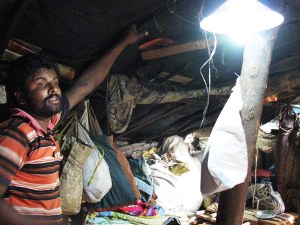
Asia is booming! The area’s rapid rise is considered by many the most successful story of economic development in recent history. It has seen economies expand at a completely unprecedented pace and human conditions dramatically improve.
The area is also years ahead of the Millennium Development Goals deadline of 2015. It has already achieved its targets for preventing a rise in HIV prevalence, for reducing gender disparities in education enrolment, for halting the spread of tuberculosis and for halving the proportion of people without access to safe drinking water. Pretty impressive I would say!
Social Entrepreneurship as Solution for New Challenges in Asia
However, Asia’s growth does not come without a new set of challenges. These include food insecurity, growing urban slums and rising inequality. In addition, rapid growth has led to natural resource depletion and environmental degradation which poses high risk to a region already vulnerable to natural disasters.
In order to fight these challenges, public sector response alone is not enough, especially since aid funding is decreasing as traditional donor countries tighten their belts. This is where social entrepreneurship comes into the picture.
Case Studies: Frontier Markets, Ecolink and Waste Concern
Look at the Indian social enterprise Frontier Markets for example. The company seeks out innovative ways to bring quality, low cost renewable energy, clean water, and health and hygiene products to poor households. Frontier Markets is getting closer and closer to their goal of reaching three million households focusing on women and children living in rural and peri-urban areas.
Another example is Ecolink in Vietnam, a for-profit company. It provides a network of 800 ethnic minority farmers with a marketing channel for their organic, fair trade agricultural products. It exports products to Western Europe and North America but also develops a local market and aims at opening 20 stores across Vietnam.
A third interesting social enterprise is Dhaka-based Waste Concern. It collects organic waste from cities, recycles it into organic fertiliser and generates revenue through carbon credits it earns by eliminating greenhouse gases emitted by rotting garbage. In addition, Waste Concern successfully saves cities and taxpayers the cost of waste collection, helps improve the environmental hygiene conditions of Dhaka, provides jobs and contributes to Bangladesh’s food security by helping farmers in achieving higher yields.
Challenges Social Enterprises are Facing
While the number of social enterprises throughout Asia is increasing, most of them remain small-scale initiatives. A major obstacle for them is the access to finance to scale up their operations and increase their coverage. Further to this, regulatory and policy environments need to change in many areas.
In order to address this, the Asian Development Bank (ADB) supports access to financing through various financing initiatives, and advises governments on the basics of building and maintaining business-friendly environments. The ADB also supports social enterprise development by collaborating with Shujog, an arm of the Impact Investment Exchange Asia (IIX) initiative, and other partners to prepare social enterprise landscape reports and studies on impact investors and market intermediaries. Findings are made publicly available to inform, inspire and catalyse social entrepreneurship and impact investment.
As finding funding to support social enterprises is still one of the sector’s main challenges, the creation of incentives for private investors to invest in socially or environmentally beneficial purposes is crucial to the sector’s growth. A promising innovation are Social Impact Bonds and Development Impact Bonds, which provide a vehicle to invest in the delivery of services that produce social or developmental results with the promise of near-commercial returns. The concept of Social Bonds is currently tested in Australia, Japan, the UK and the US.
With a continued commitment to harnessing the power of the market for social and environmental objectives, the Asian region definitely has potential to become a leading social enterprise incubator in the future.


